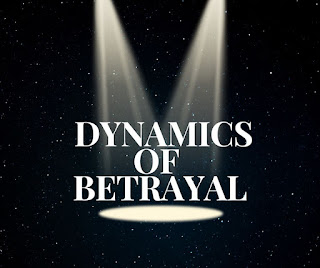Is Conflict Normal in a Marriage?
As permanent deacon, I have been married 36 years, and I am not afraid to say that I have experienced conflict from time to time in my own Marriage. Marital conflict can be of two types, resolvable conflicts and permanent or unresolvable conflicts. Many people assume that unresolvable conflicts in marriage are rare. Research shows that 69 % of the time conflicts are actually unresolvable. They are often rooted in differences in personality that are not likely to change over time. The presence of this type of conflict is actually normal and does not have to mean that there are serious problems in a marriage.
Immediately after the Fall of Adam and Eve in Genesis, we
see blaming, finger pointing, and
conflict enter their relationship. Researcher tell us the most people are able
to cope with this type of conflict and to maintain a positive relationship.
Some couples seem to ‘get stuck’ in a negative cycle, and
find this ongoing conflict is hurting their relationship. We call this, gridlock. Some signs of gridlock might
include, repeated arguments about the same thing that never seem to move
forward. The couple becomes entrenched in their positions and unwilling to
budge. In a certain sense, this is what it means to be an unresolvable conflict.
Most importantly, however, when you discuss the topic of the
conflict, you end up feeling hurt and ever more frustrated. Your conversations
about “the problem” are devoid of humor, laughter, or affection. Over time you
may become even more "unbudgeable", which leads you to vilify each
other, and this vilification leads you to be even more entrenched in your
positions. You become polarized, extreme in your views, and even less willing to
compromise. Eventually this can lead you disengage emotionally.
The good news is that even if we find ourselves stuck in
this apparent dead end, there is a way back out! Sometimes what is need is help
from a trusted Marriage coach or counselor. If you need a reference for a
counselor, please reach out to our clergy.
Even without this help, we can work to restore a more
positive environment in our relationship and reverse this cycle.
We need to work on building greater friendship and affect as a couple. We need to spend more time with
our spouse and learn to turn towards them
and listen to them. Perhaps we need to schedule date nights together, and to
pay more attention to the signals our spouse is giving us. We live in world
full of many distractions.
Our spouse is constantly giving us what we might call small bids for connection. They want to tell
us how their day went, or how they feel right now. We need to set aside our
distractions, and turn towards our partner. They need us to listen to them, and
to show our concern for them. This simple process can begin rebuilding and
strengthening our friendship and affection together as a couple. This is
obviously very simple. The difficulty is making sure we stay attuned to our
partners needs and to take time to respond to them.
As St. Peter reminds us, “Above all, hold unfailingly your
love for one another, since love covers a multitude of sins” (1 Peter 4:8).




Comments
Post a Comment
Thank you for your comment on the threefoldcord blog. All comments are moderated.